Graham Reid | | 5 min read
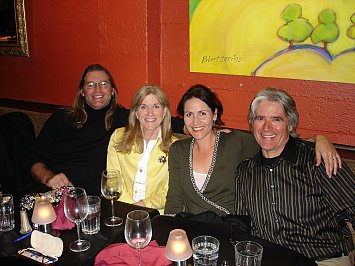
Part One:
Travel isn't usually conducive to long-term friendships. Any fork in the road can mean you and your new-found companions may part company, paths never to cross again.
Which made is such a rare pleasure that I have seen Bob and Mary (from then-Vancouver and now-Victoria BC) a couple of times since we first met on a cruise around Fiji's Yasawa Islands one February.
Bob'n'Mary are my kind of people. Mary is petite and quick-witted, and especially vivacious when she knows cocktail hour is approaching. Her lean and rangy husband has a wicked glint in his eye, a wry smile, and in Fiji made some slightly salacious but always amusing comments about his fellow travellers. They are a wicked and mischievous couple.
We met on the first afternoon and were seldom out of each others company over the following three days.
Bob -- being tall, handsome and grey-haired -- stood out in a crowd and, despite needing a cane and having an impaired arm, got about the boat with little apparent difficulty.
One night he told me about it: six years before he had suffered a stroke.
"Three years ago I still couldn't walk or talk," he said. "But I was lucky, if it had happened 24 hours before I would have drowned."
He'd been scuba diving with friends and counted himself lucky.
Mary has been by his side the whole way. They made you feel lucky to be alive. And Bob was.
He hadn't gone back to his office since the day he got out of hospital and he'd sold up the business. Now all they did was travel.
They were rich, although even after subsequent meetings I never quite figured out how he'd made his money. He said he had built condominiums all over the States, but that didn't quite explain why, the next time I saw him, they complained about having to have a whole lot of Canada's top military people and some politicians over for a dinner party.
I have always had the impression there was much more to Bob's life -- somewhere between college drop-out and the stroke -- than he let on.
After Fiji we sent e-mails from time to time, never expecting to meet again. But in September of that year I was in Seattle to interview the rock band Pearl Jam.
They (Bob'n'Mary, not Pearl Jam) were delighted I was in town and said they'd come down and see me, it was just a boat trip from their home on Vancouver Island. All I had to do was let them know where I was staying, which I didn't know until I was on my way to the airport in Auckland.
As it turned out I was booked in to the famous Edgewater Inn on the waterfront overlooking beautiful Elliot Bay. You used to be able to fish out of your window here.
With dark wood and watercolours of wildlife on the walls it didn't look as notorious as it was. An incident involving Led Zeppelin, a fish and a groupie had written it into rock's annals of infamy.
I called Bob'n'Mary on arrival and left a message saying I was flying out the following afternoon, pity to have missed you, next time perhaps . . .
Later, after having interviewed Pearl Jam, I went back to the hotel and headed for the bar.
Bob tapped me on the shoulder: "We got your message and just came down on the off-chance. I said to Mary, 'He's a journalist, let's try the bar first'. And here you are."
We laughed -- and laughed for the next 10 hours as drinks turned to dinner then after-dinner drinks.
Within a few months they were briefly in Auckland on the way to Australia. We had a long and hilarious lunch at Cin-Cin.
They told me about how they'd been in Berlin and flew to Prague to have dinner with a guy they'd met in Egypt. Or something like that.
At Christmas they send an e-mail card of someone singing Holy Night, a dreadful karaoke version with vocal chords stretched to breaking point.
We'll be up their way soon. I can't wait because I love their stories, their embrace of life, and mischievous sense of fun.
But mostly I'd like to find out exactly what Bob once did that obliges them to have politicians and senior military figures around for dinner . . .
Part Deux: The Reunion!
Bob is the poorest man I know. He owns no property, has no car, no furniture and doesn't do anything. He won't thank me for giving his name, so I won't. But Bob really does do nothing.
One afternoon while walking around Victoria, British Columbia where he lives on the edge of the harbour he told me a story: He had been at a dinner party and was introduced to someone who asked what he did. He said he didn't do anything but the man didn't believe him.
"He said, 'Oh, come on, you've got to do something. What's your typical day like?'
"So I told him. I said I woke up in the morning and my wife brought me breakfast on a tray and I'd read the papers for a while, and then probably get up and have a shower and get dressed. Then I'd maybe have a cup of coffee and read my book, then we'd probably go out somewhere for lunch.
"After that we'd come home and in the afternoon maybe I'd read some more and then take a nap. And in the afternoon we'd have cocktails and then dinner -- sometimes we'd go out to friends' houses for that, sometimes to restaurants -- and then that would be it.
"So I told this man all that and he looked at me and said, 'You're right, you don't do anything, do you?' "
Bob burst out laughing and --because it was late afternoon -- we walked up to the famous Empress Hotel and the beautiful Bengal Lounge for cocktails. On the way he told me of the drug money which had built another nearby restaurant, how a friend of his had renovated the Empress some years ago and had been dropped from the job after the cost overruns reached the tens of millions, and how he loved living on the harbour because he could watch the seaplanes and the ferries from Port Angeles in Washington state across the beautiful bay come in and out.
And all the time he laughed.
Life seems good when you don't do anything.
Of course he used to do a lot: skiing, skin-diving, and some weird stories about being in South America hiking through the jungle. He knew politicians, skiers, racing car drivers, musicians and -- when he was in rehab for alcohol problems -- he got on better with the bikers than the bankers.
However the stroke effectively ended that part of his life. But he'd learned to talk and walk again. He'd sold up his healthy business and put all his money into medium-return interest loans, nothing flashy just sound returns on millions of dollars, and he'd concentrated on commercial properties.
On paper Bob owned absolutely no material goods. Not even the furniture in his beautiful rented apartment. It allowed him and his wife to do what they wanted which was to travel -- when he wasn't staying at home doing nothing.
Over cocktails he talked of the plans he and Mary had made for the next year or so: they'd rent a place somewhere in England and do short hops to catch up with friends in various European capitals and resorts; they had a friend with a place in the Bahamas where they'd stay for a few months; maybe get back to somewhere in South America or Mexico, then head home for a while to consider their options.
I listened to all this while he laughed and peppered his plans with gossip about wealthy but dodgy friends -- and I wondered: is this really what people mean when they talk about being asset poor? Sounds good to me.
I'm seeing Bob'n'Mary again soon. It's something I am really looking forward to. I don't think they've got the Secret of Life, but they certainly know the truth about living.
It's in actually living.

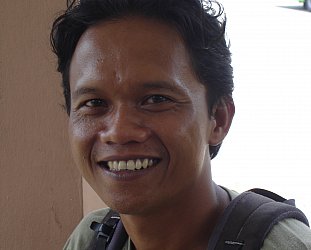
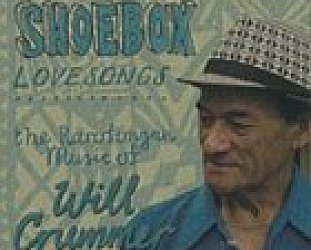
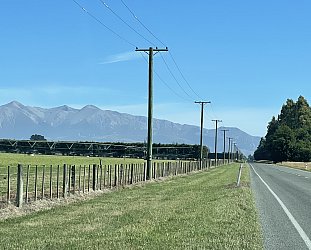
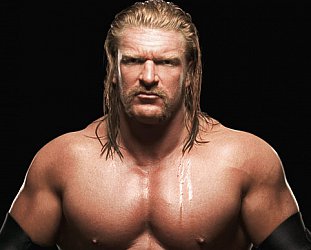
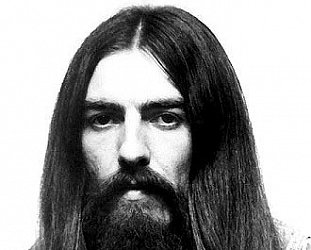
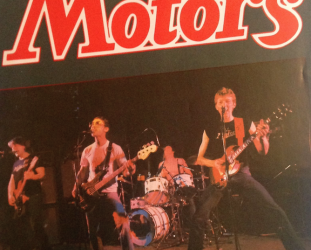
post a comment